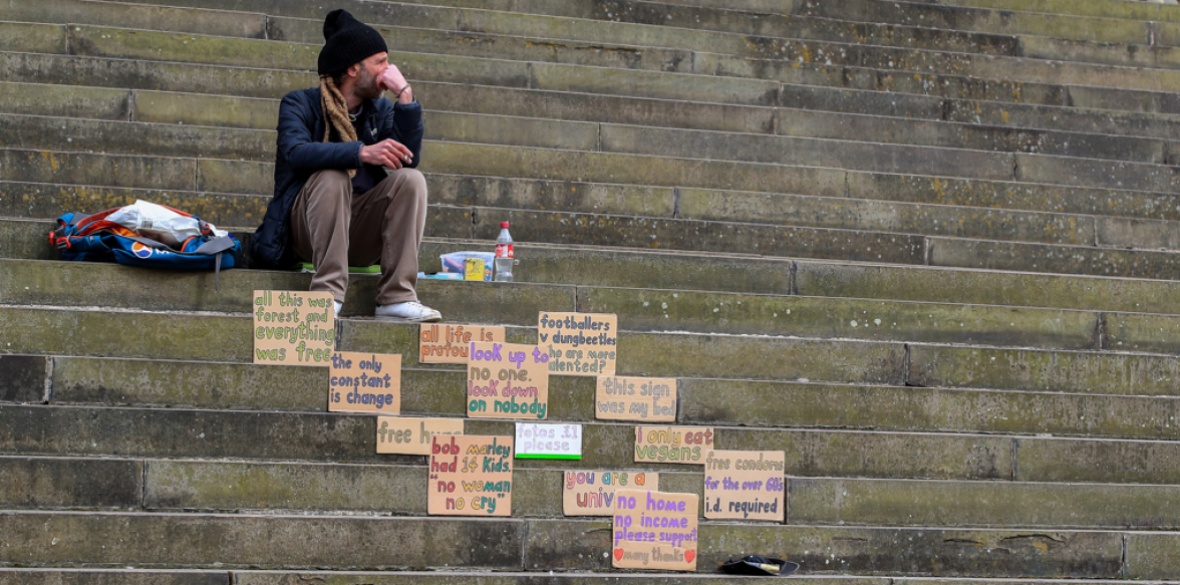This is the last article you can read this month
You can read more article this month
You can read more articles this month
Sorry your limit is up for this month
Reset on:
Please help support the Morning Star by subscribing here
THE Social Metrics Commission’s report, A New Measure of Poverty for the UK, is effectively a damning criticism of the policies of the Tory administrations since 2010.
New Labour, which aimed to eradicate child poverty and end pensioner poverty, broadly defined people in poverty as those living on less than 60 per cent of the median average household income, before housing costs.
Within this definition, the proportion of children in relative poverty fell from 27 per cent to 20 per cent from 1997 to 2010, when New Labour was in office.
The 2010 Child Poverty Act committed governments to cutting the level further, to less than 10 per cent by 2020/21.
Relative pensioner poverty also fell from 25 per cent to 18 per cent to 2010, and currently stands at 17 per cent within the definition.
However, Tory cuts to tax credits, and in particular cuts to support for low-income families with more than two children, have suggested that more than a million more children will be in poverty by 2022.
Consequently, government ministers have claimed that the New Labour definition is too crude.
In the wake of that, the Social Metrics Commission was established by Tory Baroness Philippa Stroud, uniting poverty experts and “thinkers from the right and left.”
The commission has devised a new metric which “accounts for a range of inescapable costs that reduce people’s spending power” — like rent or mortgage payments, childcare and the extra costs of disability — as well as “the positive impact of people’s liquid assets on alleviating immediate poverty,” including savings, stocks and shares.
It found that 14.2 million people live in poverty, 22 per cent of the total. This has fallen only slowly from 23.5 per cent in 2009.
Furthermore, there are 2.5 million people in the band less than 10 per cent above the poverty line, and relatively small changes in their circumstances could mean they fall below it.
Some 8.4 million of those in poverty are working-age adults, again only a small fall from the post-recession peak.
There are 4.5 million children in poverty, 32.6 per cent of the total.
The figure has only fallen by around two percentage points since 2001, and three points since 2009, when it was at its highest. Some 41 per cent of children in families that include a disabled adult or child are in poverty.
Within this new definition, the proportion of pensioners in poverty has fallen from 20.8 per cent in 2001 to 11.4 per cent in 2017, but the lower figure still means nearly 1.5 million pensioners.
And, if you are poor while of working age, you are unlikely to be able to save up much in the way of liquid assets for retirement.
Over half — 7.7 million — of the people in poverty live in persistent poverty, meaning that they have spent all or most of the last four years or more in that situation.
Given these figures, it is not surprising that foodbank usage has soared.
The Trussel Trust reported in April that in previous 12 months over 1.3 million three-day emergency food supplies were delivered to people in crisis across Britain — a 13.5 per cent increase over the previous year.
Benefit delays at 24 per cent and benefit changes at 18 per cent were among the highest reasons for referral.
Significantly, the increase was 52 per cent on average in areas where universal credit had been fully rolled out.
However, the biggest single referral reason was low income, at 28 per cent.
Tory Britain has become a low-pay economy, both in the public sector and in the zero-hours contracts/agency working/gig economy private sector.
Only this week, public-sector trade union Unison was offering foodbank vouchers to nurses at Belfast hospitals — and with good reason.
Meanwhile the super-rich are coining it like never before.
Britain urgently needs a pay and benefits rise — and that means driving the Tories out of office and electing a left-led Labour government.











